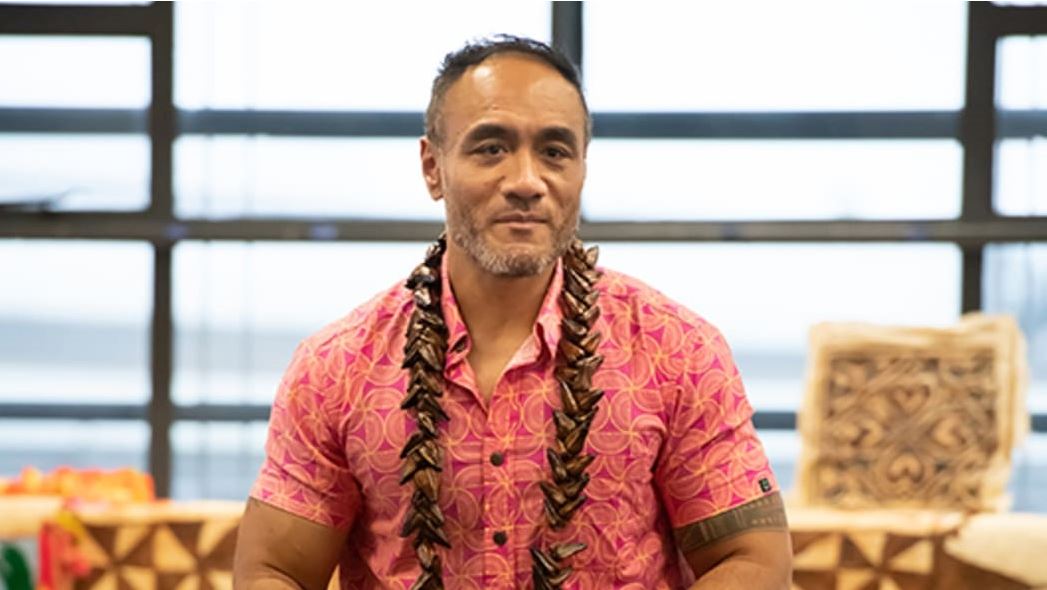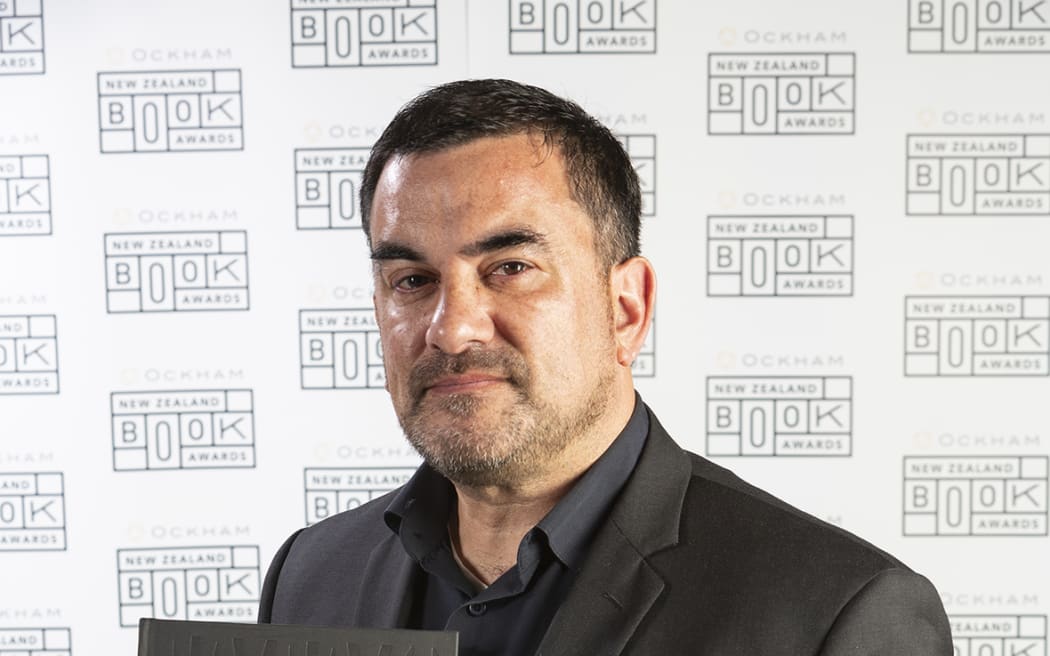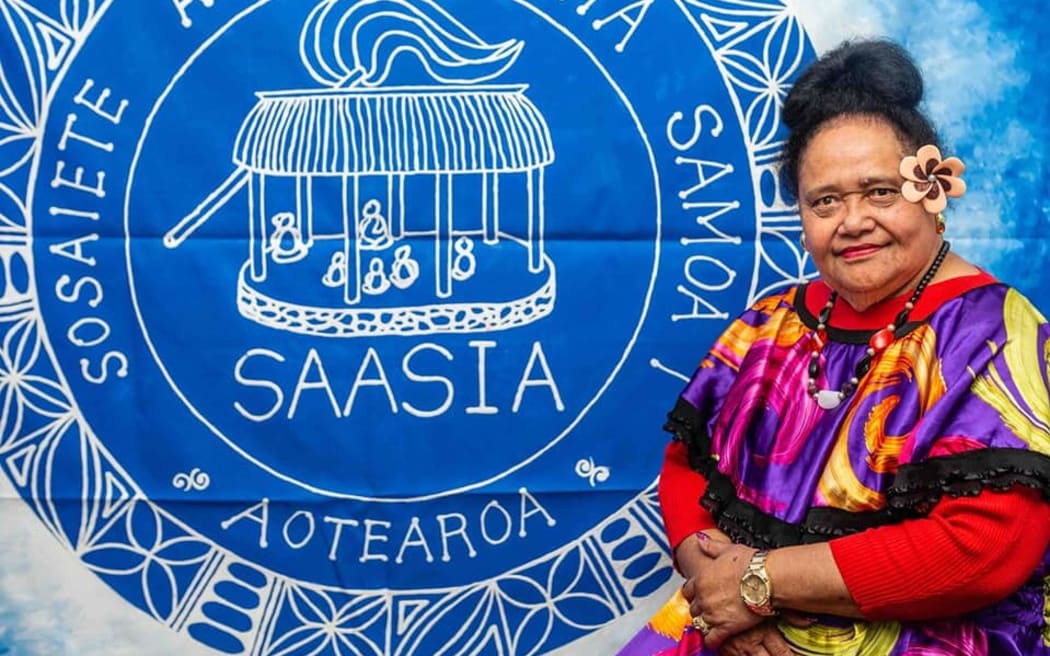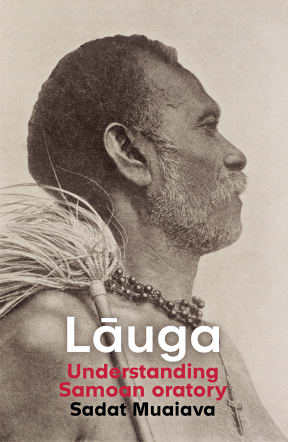”Lāuga is a way of understanding the world of Fa’a Samoa’ says author
Tuesday 31 May 2022 | Written by RNZ | Published in Regional, Samoa

Sadat Muaiava, Samoan Language Week launch 2021 , at Wan Solwara, Victoria University of Wellington Photo: ROBERT CROSS
Sāmoan oratory, lāuga, is performed at formal and ceremonial gatherings. It is an integral part of the Sāmoan cultural and political landscape. It is ubiquitous, found at every level of Sāmoan life from the village fono to the Parliament.
For Victoria University academic, Lupematasila Fata Le'ausalilo 'Au'afa Sadat Muaiava, encouraging young Sāmoans to reconnect with their culture is a life-long passion. It inspired him to write 'Lāuga: Understanding Samoan oratory' a text which explains and propounds this vital tradition. The intended audience includes the world-wide Sāmoan diaspora, who may not have grown up around lāuga.
Muaiava's goal is to share the knowledge and skills that underpin Lāuga, so that all Sāmoan people can appreciate Fa'a Sāmoa, the Sāmoan way.
To Muaiava, lāuga, is more than just delivering speeches.
"To most people, lāuga, is oratory, means oratory, and most understood to be formal speech-making or formal oratory, but it's more than that," he said.
"Lāuga, is much more than - it's more layered and complex and just really beautiful. To me, lāuga ,is a way of knowing, and it's a way of seeing the world and understanding the world of Fa'a Sāmoa. We find explanations of why we do the things the way we do."

While writing his book Muaiava consulted with Te Papa's Senior Curator Sean Mallon, who authored a book about traditional Samoan tatooing, Tatau. This practice survived the colonisation of Sāmoa, despite being banned by Missionaries in other Pacific nations. Mallon said Sāmoa's ability to hold on to many of its cultural practices such as the tatau and lāuga, is due to Sāmoans valuing their place in society.
"I think that the reason why these practices persist is that Sāmoans value what they do for society and what they do for them as people, how they uphold their social status in their community, how they preserve the knowledge and stories of different villages and families and districts and those are some of the things that Sāmoan people value."

Porirua community leader, Le'autuli'ilagi Taotua Malaeta Sauvao said although the lāuga is commonly performed by men, Sāmoan women can also partake in the practice.
Le'autuli'ilagi, who is notable for teaching the Sāmoan language said the lāuga,can only be undertaken by those who have a 'tulafale' or chiefly oratory title.

"Honestly, it's not strictly for Sāmoan men, it's for those who hold the oratory title - they're the ones who perform the lauga, not the untitled men nor the untitled women. As a Sāmoan woman myself, I would like to see more of our Sāmoan women who hold the oratory title or the tulafale title perform the lāuga, - they can - provided they have the confidence to speak publically in that way."
Although Muaiava is listed as the book's author he credits its creation to a group of writers who are passionate about promoting Sāmoan culture .
"It's been put together by a community of writers, so it's like from one community to another with the hope that we can all share narratives and histories and stories with each other to help better ourselves and to not learn about the beauty of lāuga, but the beauty of indigenous cultures."
The book will be launched during the week of Samoa's 60th Independence Day celebrations.














































